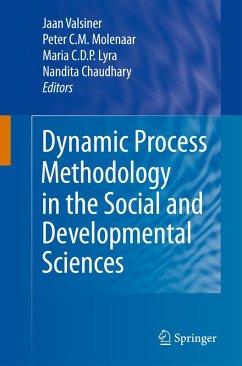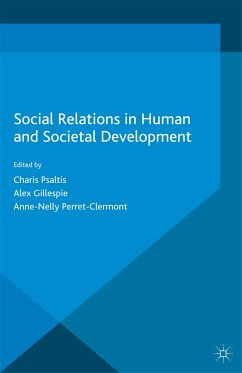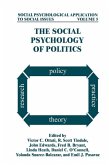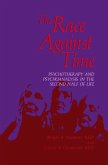Edited by Jaan Valsiner, Peter C.M. Molenaar, Maria C.D.P. Lyra, and Nandita Chaudhary
Reality is dynamic: filled with variables and constantly in flux. So are the physical, psychological, and social processes that make up our lives-so much so, assert the contributors to Dynamic Process Methodology in the Social and Developmental Sciences, that phenomena science often dismisses as "anecdotal" evidence are in fact the valuable record of highly individual dynamic systems.
Informed by dynamic systems theory and the rich history of person-centered therapy, the editors argue that the current emphasis on phenomena as data eliminates unique human context in the name of statistical accuracy, and propose instead an idiopathic re-reading of the social sciences. An international panel of researchers provides historical bases for the study of dynamic phenomena as well as a variety of pertinent applications from daycare centers to political parties, answering bedrock questions about idiographic research (e.g., what constitutes sampling?), and offering scientifically valid methods for extracting evidence from individual cases. Among the topics covered:
- Systemic knowledge use in medicine and psychology.
- The ethnography of everyday life.
- Life histories as sources for knowledge.
- Qualitative modeling of intra-individual change.
- Social dynamics in complex family contexts.
- Dynamic methodology in infancy research.
With its balance of quantitative and qualitative approaches, Dynamic Process Methodology in the Social and Developmental Sciences consolidates a growing, innovative knowledge base particularly suited to the current state of socialscience, and stands as a forward-looking reference for psychologists, sociologists, anthropologists, and educators.
Dieser Download kann aus rechtlichen Gründen nur mit Rechnungsadresse in A, B, BG, CY, CZ, D, DK, EW, E, FIN, F, GR, HR, H, IRL, I, LT, L, LR, M, NL, PL, P, R, S, SLO, SK ausgeliefert werden.
Hinweis: Dieser Artikel kann nur an eine deutsche Lieferadresse ausgeliefert werden.









